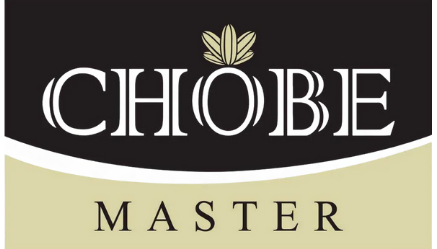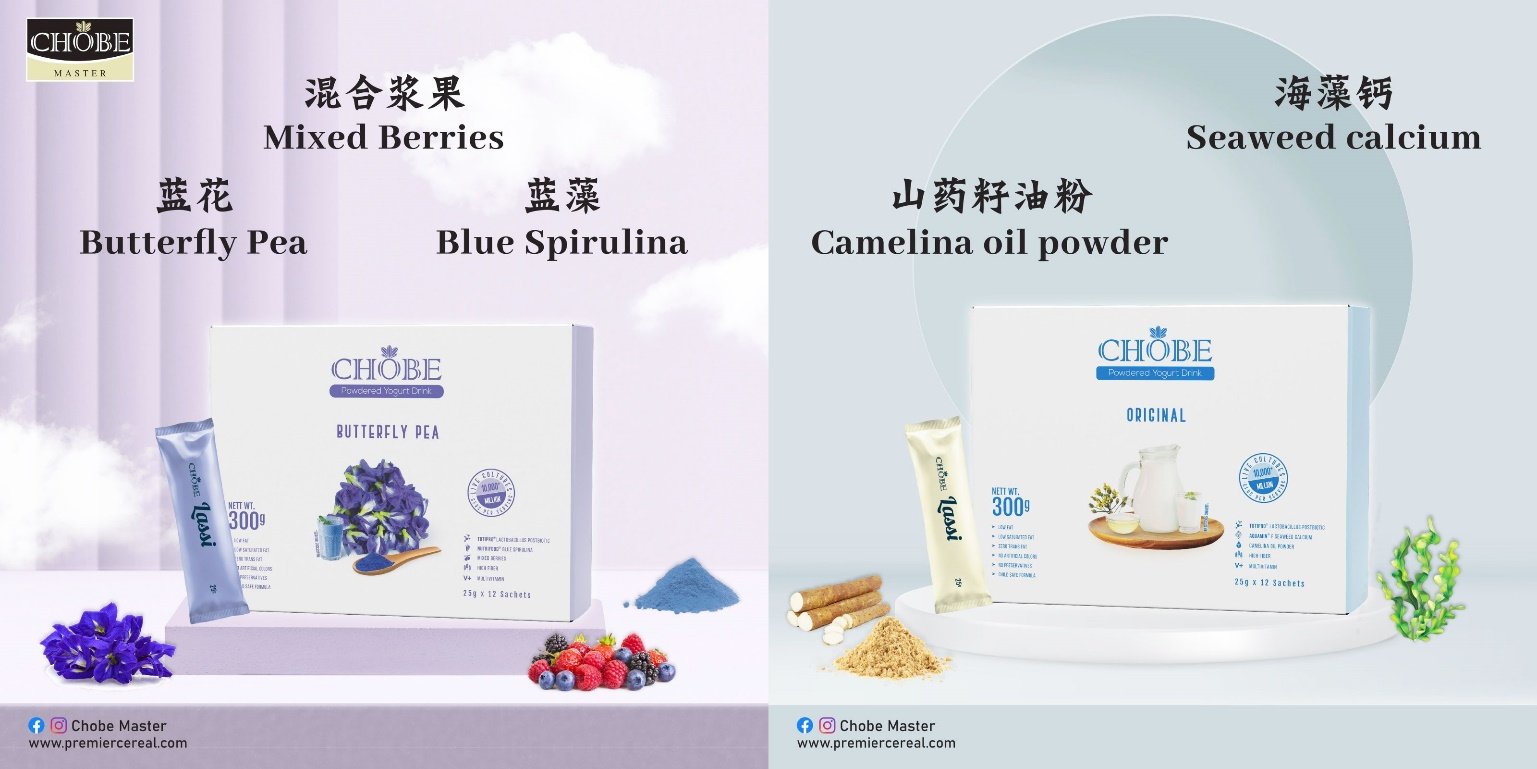
In today's health-conscious world, gut health is a topic that has captured the attention of many.
Prebiotics, probiotics, and postbiotics are three pillars of gut health that have gained significant traction in recent years. But what do these different entities involve, and what advantages do they bring?
Think of prebiotics as special food for the good bacteria in our stomachs. By promoting the growth of these good bacteria, prebiotics contribute to a healthy digestive system and improved overall well-being.
Probiotics represent a fascinating array of live bacteria and yeasts that unveil a plethora of health advantages upon their consumption in suitable quantities. They can restore the balance of gut bacteria, support the immune system, and improve digestion, among other benefits.
Lastly, postbiotics are the byproducts that result from the fermentation process of prebiotics and probiotics. These compounds also offer unique health benefits, such as enhancing the gut barrier function and reducing inflammation.
We will explore the benefits of prebiotics, probiotics, and postbiotics in more detail. By understanding how they work together, you can optimize your gut health and take steps towards a healthier you.
What are prebiotics, probiotics, and postbiotics?

Prebiotics are special fibers that act as a source of nourishment for the good bacteria in our gut. By promoting the growth of these good bacteria, prebiotics contribute to a healthy digestive system and improved overall well-being. They act as a fertilizer for the probiotics in our gut, helping them thrive and do their job effectively. Many folks often turn to bananas, onions, garlic, and whole grains as their go-to choices for a healthy dose of prebiotics.
Probiotics represent living microorganisms, encompassing bacteria and yeast varieties, which bestow a myriad of health advantages when ingested in sufficient quantities. They can restore the balance of gut bacteria, support the immune system, and improve digestion, among other benefits. Probiotics can be found in fermented foods such as yogurt, sauerkraut, and kefir, as well as in some supplements.
Postbiotics are the byproducts that result from the fermentation process of prebiotics and probiotics. These compounds also offer unique health benefits, such as enhancing the gut barrier function and reducing inflammation. Postbiotics are not live bacteria themselves but rather the beneficial substances produced by the bacteria in our gut. They can be found in foods like kimchi, miso, and sourdough bread.
The role of prebiotics in gut health

To keep your tummy healthy, you need something called prebiotics. They're like food for the good bacteria inside you. These good bacteria help with digestion and overall health. Prebiotics also help your body take in minerals better, keep your bathroom trips regular, and lower the chance of certain illnesses. Eating foods with prebiotics, like fruits and veggies with fiber, is a smart move for your tummy.
Prebiotics help special friendly bacteria grow in your gut. These helpful bacteria do cool stuff, like improve digestion, make your immune system stronger, and lessen swelling. When you eat prebiotics, you're like a chef serving up a feast for these friendly bacteria, making sure they stay strong and keep you healthy.
Think of prebiotics as plant food for your gut's good bacteria. They give these helpful bacteria the nutrients they need to grow strong, while keeping the bad bacteria in check. This balance is key for smooth digestion, soaking up nutrients, and keeping your immune system in top shape. Including foods rich in prebiotics in your meals is like giving your gut a green thumb.
Prebiotics not only help your gut but also make your immune system better. They boost the production of special substances called short-chain fatty acids, which calm down inflammation and make your gut tougher. This helps lower the risk of problems like tummy inflammation, allergies, and other immune-related issues. So, by adding prebiotic foods to your diet, you're giving your immune system a superhero suit.
Prebiotics are like food for the good bacteria in your gut. When they reach the large intestine, the bacteria feast on them and produce short-chain fatty acids (SCFAs), which are good for your health in a bunch of ways, including:
- Promoting gut health
- Boosting the immune system
- Reducing inflammation
- Improving digestion
- Lowering cholesterol levels
- Reducing the risk of certain chronic diseases, such as heart disease, cancer, and diabetes
The benefits of probiotics for gut health

You know, probiotics, they're like these little live helpers in your tummy. They do a lot of good stuff when you have them in the right amounts. You can find them hanging out in foods like yogurt, sauerkraut, and kefir, or sometimes people take them in pills. Probiotics basically fix up the team of tiny creatures living in your gut. Sometimes, this team gets out of balance because of things like not eating well, stress, taking antibiotics, or getting sick.
One cool thing about probiotics is how they make your belly work better. They break down the good stuff in your food and help your body soak it all up. That way, you get more of the good stuff from your food, and your belly feels happier. Probiotics also help with belly problems like when it's all irritable, gets blocked up, or is just too watery. They do this by making more good guys, stopping the bad ones from growing, and getting the gut back in shape.
Now, besides keeping your belly happy, probiotics are like the superheroes of your immune system. Your gut is like the headquarters for your immune system, and it needs to be in good shape. Probiotics tell your immune system to make more soldiers and keep them in line. This helps you fight off bad germs and lowers your chances of getting sick in a strange way where your own body attacks itself. So, if you eat foods with probiotics or take those probiotic pills, you're like giving your immune system a power-up.
Oh, and there's one more cool thing. Probiotics can also calm down any troublemakers in your gut. When your gut is always angry and swollen, that's bad news. It can lead to belly issues and make you more likely to get sick. Probiotics are like the peacekeepers. They make these anti-angry substances and compete with the bad guys for space and food. This can help if you have a condition where your gut is always mad, like that inflammatory bowel thing. So, if you add probiotics to your meals or take those pills, it could help you feel better if your gut is always upset.
When you eat or drink probiotics, they travel to your gut and join the trillions of other bacteria that live there. Probiotics compete with harmful bacteria for food and space, and they can also help to strengthen the gut lining.
Probiotics have been shown to have a number of health benefits, including:
- Improving digestion
- Reducing inflammation
- Boosting the immune system
- Preventing and treating diarrhea
- Reducing the risk of irritable bowel syndrome (IBS)
- Improving skin health
- Reducing the risk of allergies and asthma
How probiotics work in the gut:
- Probiotics travel to the gut and join the trillions of other bacteria that live there.
- Probiotics compete with harmful bacteria for food and space.
- Probiotics help to strengthen the gut lining.
- Probiotics produce short-chain fatty acids (SCFAs), which have a number of health benefits.
Postbiotics and their impact on gut health

While many people are discussing the benefits of prebiotics and probiotics for improving the health of your gut, there's a new player in town known as postbiotics. Postbiotics are essentially the byproducts that result from the fermentation process of prebiotics and probiotics. They consist of substances such as short-chain fatty acids, vitamins, enzymes, and components that combat harmful microorganisms.
Now, what's fascinating about postbiotics is how they fortify the body's gut defenses. Think of your gut as a protective barrier, like a shield. It prevents harmful substances from entering your bloodstream while allowing the beneficial ones to pass through. If this protective shield weakens, it's what experts refer to as a "leaky gut," which can lead to health problems. However, postbiotics, particularly short-chain fatty acids like butyrate, can help reinforce this shield and prevent a leaky gut.
But that's not all! Postbiotics are akin to superheroes within the realm of gut health because they can also quell inflammation. Excessive inflammation in your gut can disrupt normal functions and make you unwell. Postbiotics, including those short-chain fatty acids, can act as a brake on inflammation, aiding in the healing of your gut.
But hold on, there's more to the story! Postbiotics can also battle against the villains, such as harmful bacteria and other troublesome invaders. This ensures that your gut remains in a state of balance and reduces the risk of falling ill. So, if you're interested in incorporating more postbiotics into your daily life, consider consuming foods like kimchi, miso, and sourdough bread. These choices will contribute to the health and happiness of your gut.
The gut-brain connection and its relation to prebiotics, probiotics, and postbiotics

The gut-brain connection is like a secret chat between your tummy and your brain. It's not just a simple conversation; it's a whole network of signals and interactions that play a big role in how we feel. And guess what? Things like prebiotics, probiotics, and postbiotics can mess with this chat, making it either better or worse.
Scientists are finding out that the stuff in your gut, called the gut microbiome, can actually mess with your brain's job and your mood. Your gut makes these things called neurotransmitters, like serotonin and dopamine, which control how you feel. And guess what helps keep them in check? It’s probiotics! They make sure everything's chill in your gut and help your brain work better.
But there's more! These things called prebiotics, probiotics, and postbiotics don't just stop at your brain; they also give a hand to your immune system. Your gut is like the fortress of your immune system, and having a good gut gang is important. These helpful gut buddies make sure your immune system stays strong, so you're not prone to getting sick, which could mess with your brain.
Now, here's the plot twist: If your gut's protective wall isn't strong enough, bad stuff can sneak into your body and mess with your brain. But don't worry, you can toughen up that gut wall by gobbling up prebiotics, probiotics, and postbiotics. It's like giving your gut armor to keep your brain safe and sound.
How to incorporate prebiotics, probiotics, and postbiotics into your diet

Improving your gut health through the addition of prebiotics, probiotics, and postbiotics to your diet is quite straightforward and can bring about substantial advantages. Here are some practical steps to help you begin:
- Boost your consumption of prebiotic-rich foods: Make sure to include fiber-packed fruits and veggies like bananas, onions, garlic, asparagus, and artichokes in your daily meals. These foods provide the essential nourishment that helps the good bacteria in your gut flourish.
- Integrate probiotic-rich foods: Consider adding fermented foods like yogurt, sauerkraut, kimchi, kefir, and miso to your diet. These foods contain live microorganisms that can assist in rebalancing your gut's microbial community.
- Think about probiotic supplements: If you have specific concerns about your gut health or find it challenging to include enough probiotic-rich foods in your diet, you might want to explore probiotic supplements. Consult with a healthcare expert to determine the appropriate probiotic strain and dosage tailored to your needs.
- Include postbiotic-rich foods: Enhance your postbiotic intake by incorporating fermented foods such as kimchi, miso, and sourdough bread into your meals. These foods contain valuable compounds that can provide support for your gut health.
- Exercise moderation: While prebiotics, probiotics, and postbiotics offer numerous health advantages, it's crucial to maintain balance. Overindulging in certain foods or supplements can lead to digestive discomfort. Pay attention to your body's signals and adjust your intake accordingly.
Choosing the right prebiotic, probiotic, and postbiotic supplements
When you're diving into the realm of prebiotics, probiotics, and postbiotics, it's crucial to ponder over your personal necessities and the results you're aiming for. Here's a set of considerations to keep in mind when you embark on the quest for the ideal supplements:
- Microbiome Mastery: It's a microbial world in your gut, and each type of microbe can wield its own unique influence. Delve into the fine print on product labels to discern the bacterial inhabitants of a supplement. Opt for the one that dances in harmony with your goals. For example, if you're looking to boost your digestion or bolster your immune defenses, pick a supplement housing the precise bacterial comrades for the task.
- Counting Colonizers: The potency of live bacteria or yeasts within a supplement is quantified in CFUs (Colony-Forming Units). Ascertain that your chosen supplement packs a robust colony, ensuring you receive the full benefit of these friendly microorganisms.
- Storage Sleuth: When selecting a probiotic, factor in your lifestyle and storage options. Some probiotics demand the cool embrace of a refrigerator to maintain their vitality, while others can bask in room temperature comfort.
- Trustworthy Treasures: Procure your supplements from the vaults of trusted establishments known for their unwavering commitment to quality. Seek out companies with a stellar track record in crafting top-tier creations. You can also verify if a supplement has undergone the scrutiny of independent third-party testing, ensuring its sanctity and purity.
- Expert Navigation: To unearth the prebiotic, probiotic, and postbiotic gems most befitting your unique needs, seek the wisdom of a healthcare sage. They can expertly chart the course for you, helping identify your precise requirements and steering you towards the supplements that resonate with your well-being goals. In a world teeming with options, their guidance will illuminate your path to a well-informed choice.
Common misconceptions about gut health and the gut health trio
Let's talk about some common misunderstandings regarding gut health and the trio of gut health components (prebiotics, probiotics, and postbiotics):
- Too much is better: Prebiotics, probiotics, and postbiotics can indeed be quite helpful for your well-being, but it's important not to overdo it. Consuming them excessively might lead to some tummy discomfort or an upset in your gut's balance. Instead, stick to recommended amounts and pay attention to how your body reacts.
- Not all probiotics are the same: Probiotics aren't one-size-fits-all. Different types of these little bacteria can have various effects on your gut and offer distinct health perks. When choosing a probiotic supplement, think about what you want to achieve and consider talking to a healthcare expert for guidance.
- Supplements aren't a must for gut health: You don't always need supplements to take care of your gut. A balanced diet can do the trick. Try to eat foods rich in prebiotics, probiotics, and postbiotics to naturally boost your gut health.
- It's not just about digestion: While your gut does play a major role in digestion, it influences much more than that. A healthy gut can affect your immune system, your mood, and even how your skin looks. So, think about your whole well-being when caring for your gut.
- Quick fixes don't exist: Improving your gut health isn't a speedy process. It takes time, and it's not the same for everyone. Be patient and keep at it to see the results you're aiming for. Your gut will thank you in the long run.
Conclusion: Taking care of your gut health with prebiotics, probiotics, and postbiotics
Incorporating prebiotics, probiotics, and postbiotics into your diet can have significant benefits for your gut health and overall well-being. Prebiotics act as food for the beneficial bacteria in your gut, probiotics restore the balance of gut bacteria, and postbiotics offer unique health benefits as byproducts of fermentation.
By understanding the role of prebiotics, probiotics, and postbiotics, you can optimize your gut health and take steps towards a healthier you. Focus on consuming prebiotic-rich foods, such as fiber-rich fruits and vegetables, and include probiotic-rich foods, such as fermented foods, in your diet. If necessary, consult with a healthcare professional to determine the right prebiotic, probiotic, and postbiotic supplements for your specific needs.
Remember, gut health is a journey, and small changes can make a big difference. Prioritize your gut health, and you'll reap the rewards of a healthier, happier you.
RECOMMENDATION:
To live a healthy life and improved your gut health, start taking care of your gut health by consuming Chobe Powdered Yogurt Drink now. Click here to know what's the benefit for this product.


